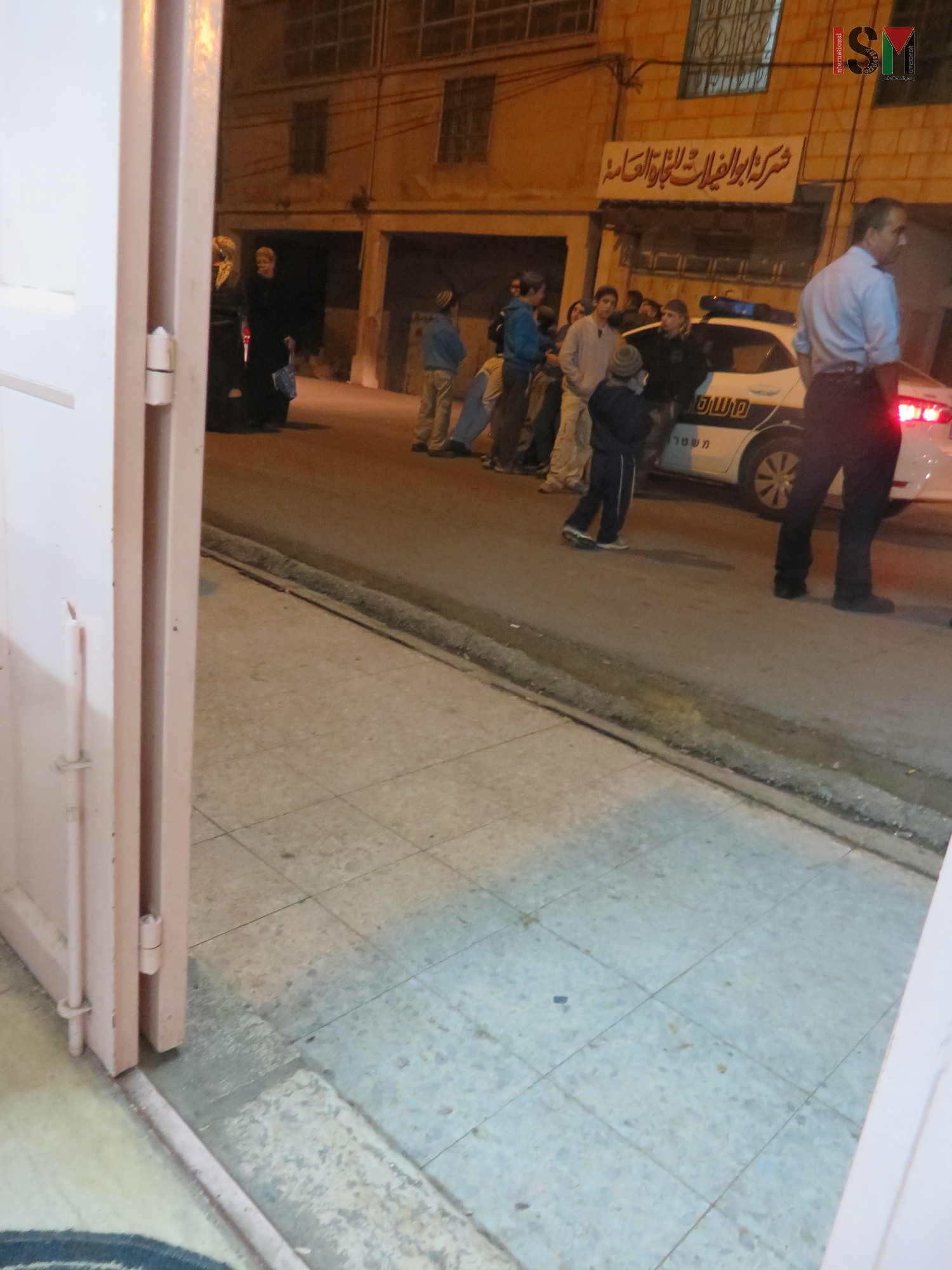Tag: Settler violence
-
Hebron rages against ethnic cleansing of its youth at funeral for five young martyrs
31st October 2015 | International Solidarity Movement, al-Khalil team | Hebron, occupied Palestine Today, tens of thousands of mourners gathered for the funerals of five Palestinian youth murdered by Israeli forces in occupied al-Khalil (Hebron). After the funeral, Israeli forces violently attacked mourners demonstrating at Bab al-Zawweya, injuring dozens. Tens of thousands of mourners gathered…
-
Constant settler harassment for Palestinians in Shuhada Street
30th October 2015 | International Solidarity Movement, al-Khalil team | Hebron, occupied Palestine Wednesday 28th in the evening activists from the International Solidarity Movement once again received a call from local shop owner Ghassan telling that his shop was being surrounded by settlers from the illegal settlements in al-Khalil (Hebron). The settlers were shouting curses…
-
Notorious violent criminal settler Anat Cohen assaults and terrorizes internationals again
27th October 2015 | International Solidarity Movement, al-Khalil team | Hebron, occupied Palestine During the last two days international human rights activists have repeatedly been attacked verbally and physically by infamous illegal settler Anat Cohen. At 7:15 this morning, Anat Cohen emerged from Beit Hadassah illegal settlement in Tel Rumeida onto Qurtuba checkpoint, where two internationals…



